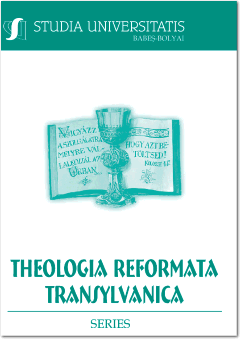A MEGBÉKÉLÉS ÉS AZ EMLÉKEZÉS ETIKAI KRITÉRIUMAI
ETHICAL CRITERIA OF RECONCILIATION AND REMEMBRANCE
Author(s): Sándor FazakasSubject(s): History of Church(es), Biblical studies, Systematic Theology, Pastoral Theology
Published by: Studia Universitatis Babes-Bolyai
Keywords: reconciliation; forgiveness; truth and justice; ethical criteria of remembrance;
Summary/Abstract: Ethical Criteria of Reconciliation and Remembrance. Reconciliation is a funda-mental concept of Christian theology, church practice and ecumenical social ethics. It is difficult to give a universally valid definition of reconciliation. The concept re-flects the changes of the image of God and man, the shifts in the Christian under-standing of salvation in cultural, legal and social context. Despite these significant differences, the juridical and social aspect of the doctrine is a constant in the history of theology and interpretation. According to this classic interpretation, reconciliation refers to the foundational event between God and man. The acting force of the event of reconciliation is God - but the human being has its part in actively partici-pating in the act of reconciliation, accepting the grace of God to collaborate with the creator in social, legal, economic and ecologic reconciliation between God and mankind. Unfortunately, the concept of reconciliation has been stripped of this rich spiritual-theological meaning and was reduced to its social, political and juridical dimensions. In order to counteract the one-sidedness of this understanding of rec-onciliation, this study aims to explore the theological-biblical complexity of reconcil-iation, and then to show the relevance of this rich theological concept for the cul-ture of remembrance, philosophical debates, and for the moral-legal dimension of the reconciliation processes of our societies.
Journal: Studia Universitatis Babeș - Bolyai Theologia Reformata Transylvanica
- Issue Year: 65/2020
- Issue No: 1
- Page Range: 123-143
- Page Count: 21
- Language: Hungarian

